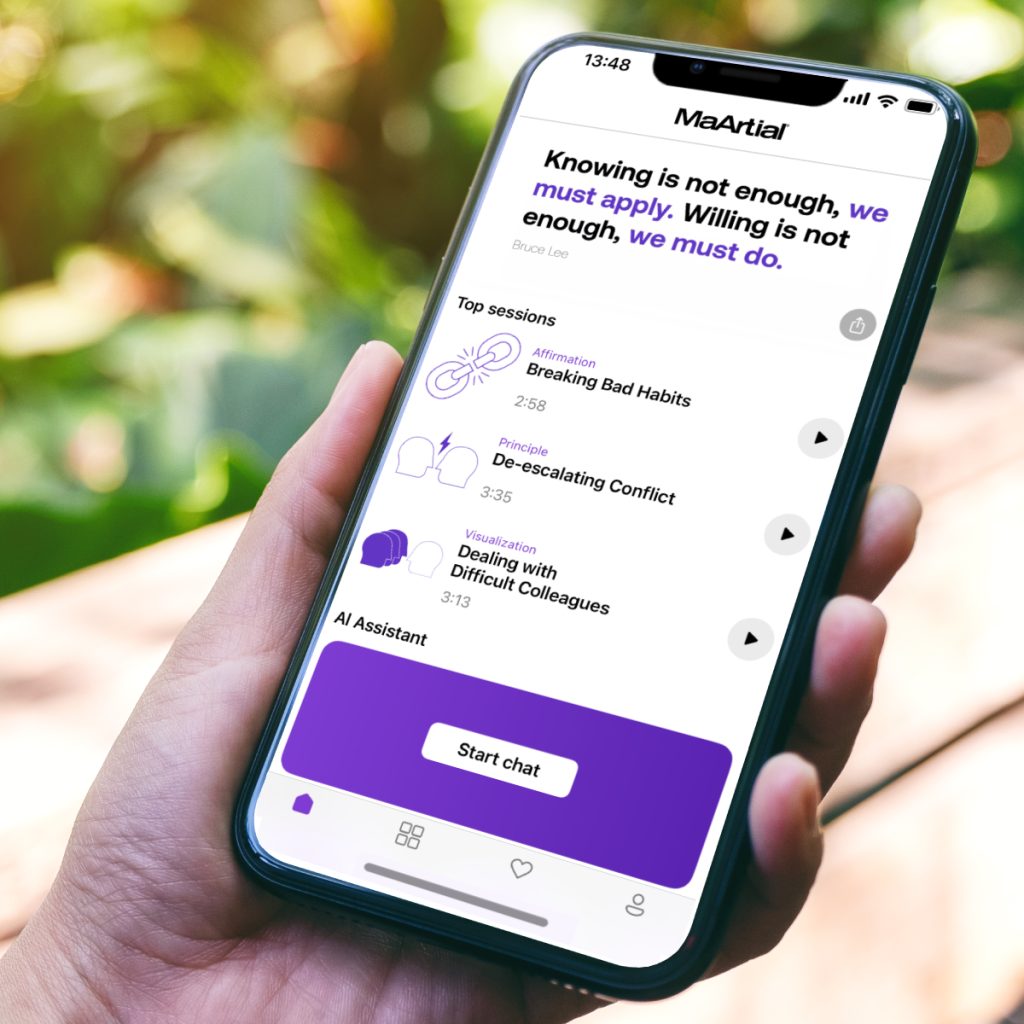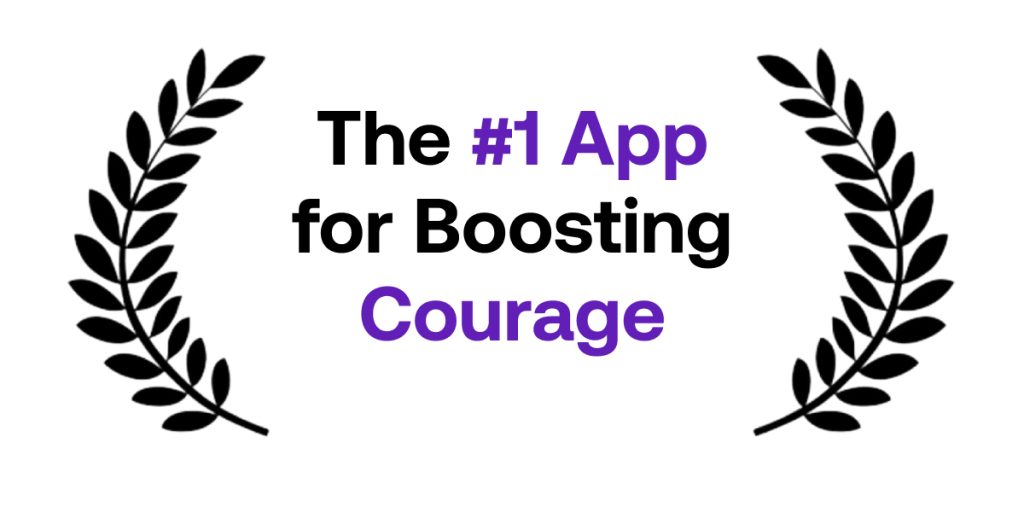Even the most dedicated professionals experience periods of disengagement or frustration in their work. According to a 2023 Gallup survey, only 33% of U.S. employees reported being actively engaged at work, while 16% described themselves as “actively disengaged.”1
While changing careers or roles is a valid solution for some, it is not always immediately possible. Fortunately, by reframing how you approach your current role—and by drawing upon principles from martial arts, Stoic philosophy, and behavioral psychology—you can significantly improve your daily work experience, motivation, and mindset.
Below are six mindset shifts inspired by the mental discipline of the warrior tradition, offering practical ways to regain focus, control, and a renewed sense of purpose in your work.
1. Focus on What You Can Control
“You have power over your mind—not outside events. Realize this, and you will find strength.”
— Marcus Aurelius, Meditations
One of the central teachings in both Stoicism and martial philosophy is the distinction between what we can control and what we cannot. In The Art of War, Sun Tzu emphasizes preparation, awareness, and inner control as prerequisites to any external success.2
In the workplace, this translates into attention management and mindset regulation. While external factors such as organizational culture or management decisions may remain outside your influence, you can choose how you respond, where you focus your attention, and how you define your own growth.
Practical approach:
Begin each day by identifying one aspect of your work that you can control and invest in fully. This may be a relationship, a personal standard, or a skill you wish to strengthen.
2. Begin the Day with Mental Alignment
Martial artists do not begin their training with action—they begin with intention and stillness. A grounded mental state improves clarity, emotional regulation, and task readiness. Research supports this: a 2016 study published in Biological Psychiatry found that consistent mindfulness practice reduces amygdala activity and enhances stress resilience.3
Practical approach:
Develop a simple morning practice before work—such as controlled breathing, mindful movement, or reading a short philosophical passage—to prime your mental state. The goal is not stimulation, but alignment.
3. Establish Boundaries Against Workplace Negativity
“To subdue the enemy without fighting is the acme of skill.”
— Sun Tzu, The Art of War
Negative workplace dynamics—such as gossip, conflict, or passive aggression—can erode morale and productivity. While direct confrontation may not always be advisable, strategic disengagement and emotional boundaries can reduce the psychological impact of toxic behavior.
This approach aligns with martial arts principles such as aikido and jujutsu, which emphasize redirection rather than resistance. The goal is not to absorb hostility, but to neutralize its effect by controlling your own energy.
Practical approach:
Limit engagement with counterproductive conversations and redirect energy toward problem-solving or supportive collaboration. Consistency in this practice often influences team norms over time.
4. Optimize What You Can Within Your Role
Burnout is often linked to a misalignment between personal strengths and professional responsibilities. A 2018 meta-analysis in Frontiers in Psychology confirmed that person-job fit significantly predicts job satisfaction and emotional well-being.4
NEW! Put the principles from this article into practice with the free courage-boosting MaArtial app on the App Store for iOs and Play Store for Android.
While a full role change may not be possible, minor adjustments to your responsibilities or environment can make a substantial difference.
Practical approach:
Seek opportunities to focus on tasks that align with your strengths or values. Where feasible, propose adjustments in workflow, collaborate across departments, or initiate side projects that offer meaning and engagement.
5. Treat Your Workspace as a Zone of Focus
Environmental psychology confirms that physical surroundings influence mood, focus, and cognitive performance. Research published in Journal of Environmental Psychology shows that cluttered or overstimulating workspaces lead to reduced productivity and higher stress.5
In martial culture, the training space—or dojo—is treated with respect. It is clean, intentional, and free of distraction. Whether you work in a private office or a shared space, the same principle applies.
Practical approach:
Organize your workspace to reflect clarity and purpose. Add one or two personal items that reinforce your identity and values, while removing clutter that creates visual or cognitive distraction.
6. Reconnect with a Broader Sense of Purpose
“What you leave behind is not what is engraved in stone monuments, but what is woven into the lives of others.”
— Pericles
Meaning is a cornerstone of motivation. Research from the University of Michigan suggests that individuals who view their work as contributing to a greater purpose report higher engagement and well-being—even in high-stress roles.6
Meaning does not always come from the content of the work itself, but from the impact it creates—whether for family, clients, colleagues, or society.
Practical approach:
Reflect weekly on the positive consequences of your work: who it benefits, what it supports, and what it allows you to build outside of work. Anchoring your effort in purpose transforms routine into contribution.
Discipline First, Satisfaction Follows
Work will not always be easy or exciting. But it can be a space for mental training, emotional discipline, and growth.
The martial perspective reminds us: we do not wait for perfect conditions to feel empowered. We bring intention to the conditions we are given.
Train your response. Master your presence. And let your work—however imperfect—become a ground for practice.
Looking to build mental strength and daily discipline?
Download the MaArtial app, now available on the App Store and Google Play, for guided training in confidence, clarity, and emotional resilience—rooted in martial wisdom.
References:
- Gallup (2023). State of the Global Workplace Report. ↩︎
- Sun Tzu. (5th century BCE). The Art of War. ↩︎
- Goyal et al. (2016). Meditation Programs for Psychological Stress and Well-being. Biological Psychiatry. ↩︎
- Kristof-Brown, Zimmerman, & Johnson (2005). Consequences of individuals’ fit at work: A meta-analysis. Journal of Applied Psychology. ↩︎
- Vischer, J.C. (2007). The effects of the physical environment on job performance. Journal of Environmental Psychology. ↩︎
- Grant, A.M. (2008). The significance of task significance: Job performance effects, relational mechanisms, and boundary conditions. Journal of Applied Psychology. ↩︎














